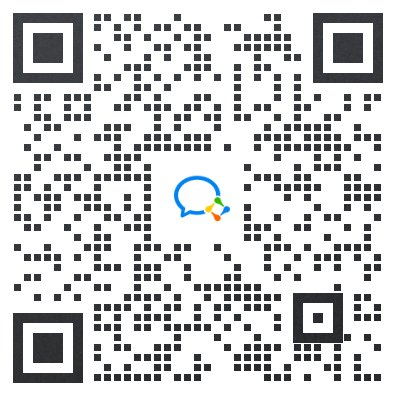2020.08.11 14:31
提到雅思备考,我们最先想到的就是剑桥雅思真题,剑桥雅思真题作为雅思备考中的热门教材,一直以来深受广大考生追捧。今天新东方在线小编就给大家整理了剑14Test2雅思听力原文:Section 4,希望能都帮助大家更好的备考雅思考试,更多剑桥雅思真题原文、题目及答案解析相关内容,欢迎随时关注新东方在线雅思网。
关注微信公众号,回复【剑14】,获取完整资料!

Test 2-Section 4SECTION 4
[01:14.98In this series of lectures about the history of weather forecasting, I'll start by examining its early history - that'll be the subject of today's talk.
[01:26.76OK, so we'll start by going back thousands of years.
[01:32.84Most ancient cultures had weather gods, and weather catastrophes, such as floods, played an important role in many creation myths.
[01:45.61Generally, weather was attributed to the whims of the gods, as the wide range of weather gods in various cultures shows.
[01:55.58For instance, there's the Egyptian sun god Ra, and Thor, the Norse god of thunder and lightning.
[02:04.67Many ancient civilisations developed rites such as dances in order to make the weather gods look kindly on them.
[02:15.01But the weather was of daily importance: observing the skies and drawing the correct conclusions from these observations was really important, in fact their survival depended on it.
[02:31.30It isn't known when people first started to observe the skies, but at around 650 BC, the Babylonians produced the first short-range weather forecasts, based on their observations of clouds and other phenomena.
[02:51.29The Chinese also recognised weather patterns, and by 300 BC, astronomers had developed a calendar which divided the year into 24 festivals, each associated with a different weather phenomenon.
[03:09.39The ancient Greeks were the first to develop a more scientific approach to explaining the weather.
[03:16.49The work of the philosopher and scientist Aristotle, in the fourth century BC, is especially noteworthy, as his ideas held sway for nearly 2,000 years.
[03:30.95In 340 BC, he wrote a book in which he attempted to account for the formation of rain, clouds, wind and storms.
[03:42.80He also described celestial phenomena such as haloes - that is, bright circles of light around the sun, the moon and bright stars - and comets.
[03:56.03Many of his observations were surprisingly accurate.
[04:00.23For example, he believed that heat could cause water to evaporate.
[04:06.18But he also jumped to quite a few wrong conclusions, such as that winds are breathed out by the Earth.
[04:15.64Errors like this were rectified from the Renaissance onwards.
[04:24.90For nearly 2,000 years, Aristotle's work was accepted as the chief authority on weather theory.
[04:33.23Alongside this, though, in the Middle Ages weather observations were passed on in the form of proverbs, such as 'Red sky at night, shepherd's delight; red sky in the morning, shepherd's warning'.
[04:50.05Many of these are based on very good observations and are accurate as contemporary meteorologists have discovered.
[05:00.10For centuries, any attempt to forecast the weather could only be based on personal observations, but in the fifteenth century scientists began to see the need for instruments.
[05:14.81Until then, the only ones available were weather vanes - to determine the wind direction and early versions of rain gauges.
[05:26.09One of the first, invented in the fifteenth century, was a hygrometer, which measured humidity.
[05:33.98This was one of many inventions that contributed to the development of weather forecasting.
[05:41.69In 1592, the Italian scientist and inventor Galileo developed the world's first thermometer.
[05:51.07His student Torricelli later invented the barometer, which allowed people to measure atmospheric pressure.
[05:59.87In 1648, the French philosopher Pascal proved that pressure decreases with altitude.
[06:08.52This discovery was verified by English astronomer Halley in 1686; and Halley was also the first person to map trade winds.
[06:20.89This increasing ability to measure factors related to weather helped scientists to understand the atmosphere and its processes better, and they started collecting weather observation data systematically.
[06:36.88In the eighteenth century, the scientist and politician Benjamin Franklin carried out work on electricity and lightning in particular, but he was also very interested in weather and studied it throughout most of his life.
[06:53.40It was Franklin who discovered that storms generally travel from west to east.
[07:00.99In addition to new meteorological instruments, other developments contributed to our understanding of the atmosphere.
[07:09.19People in different locations began to keep records, and in the mid-nineteenth century, the invention of the telegraph made it possible for these records to be collated.
[07:21.57This led, by the end of the nineteenth century, to the first weather services.
[07:28.18It was not until the early twentieth century that mathematics and physics became part of meteorology, and we'll continue from that point next week.
以上就是小编为烤鸭们整理的“剑14Test2雅思听力原文:Section 4”的全部内容,希望同学们能够认真学习剑桥雅思真题,早日和雅思说分手,更多剑桥雅思真题相关备考材料内容,欢迎随时关注新东方在线雅思网。

扫码添加助教号
免费获取最新雅思口语题库
